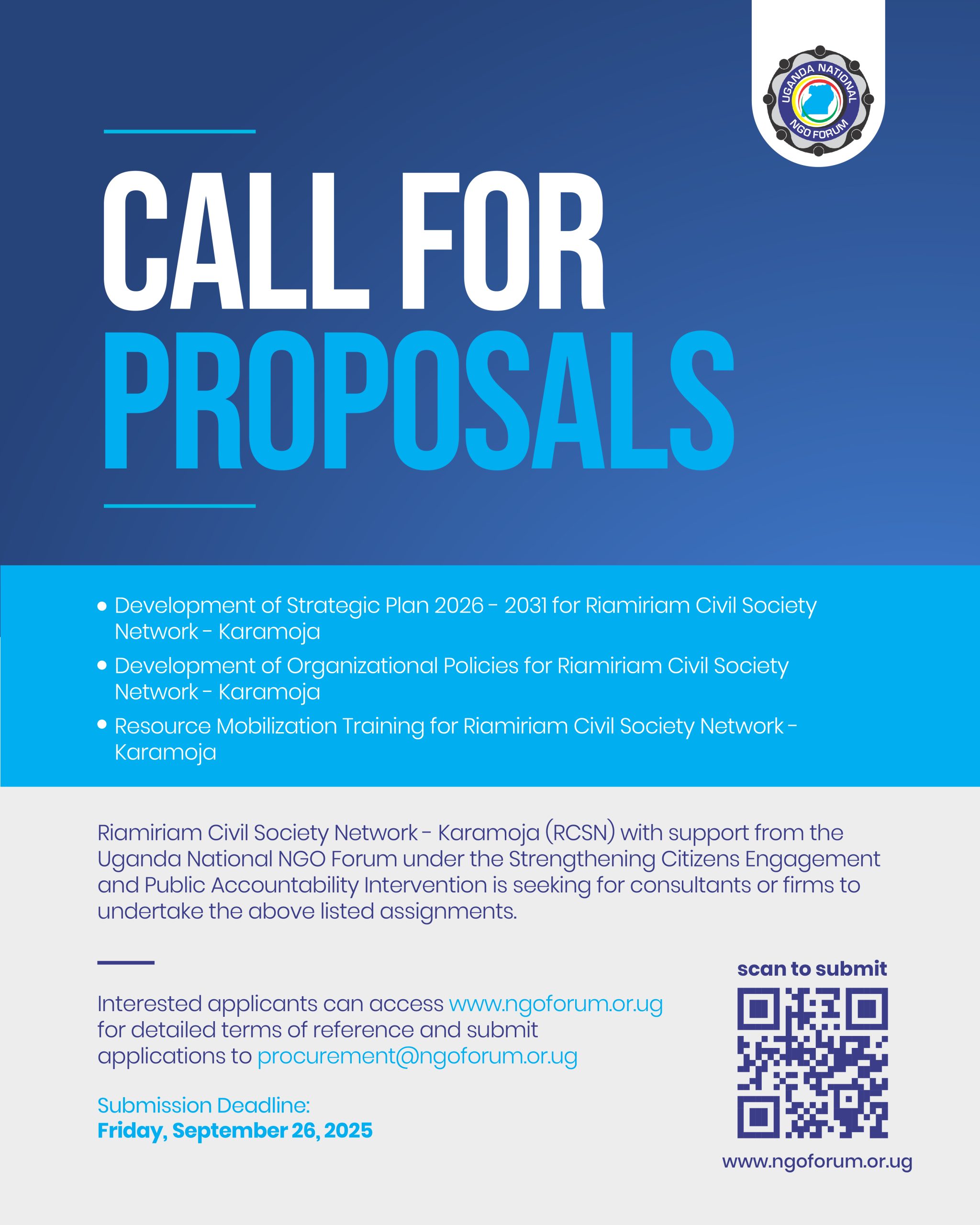CSOs urged to build constructive partnerships
CSOs are influential in communities and at the grassroots level in policy making, planning and implementation. However, to realize this, there is need for an enabling environment that allows for interaction, consultations and constructive engagement with the various categories of citizens in the communities they serve. To achieve this requires CSOs to build productive relationships with Government at all levels. These remarks were made by Mr. Richard Ssewakiryanga the Executive Director during the regional CSO dialogues on NGO Act and Public Order Management Act (POMA) held in Lira and Soroti. Mr. Ssewakiryanga noted that the two laws may restrict the operating environment for CSOs and thus called for strengthened relations between CSOs and state actors for them to operate smoothly.
Uganda National NGO Forum with support from ICCO rolled out 2 regional meetings on 2nd August 2017 in Lira (Lango sub region) and on 4th August 2017 in Soroti (Teso sub region) attended by CSOs, District Chairpersons, Chief Administrative officers, Media, Police officers, sub county leaders and other security officers from district and sub county level. The highly attended meetings that brought together over 180 district leaders aimed at formulating a constructive engagement strategy that supports the expansion of civic engagement space for civil society in the selected regions.
Speaking at the meeting, Mr. Stephen Okello the Executive Director NGO Bureau noted that the NGO Act 2016 will help to end the mistrust that had for long existed between CSOs and Government. He noted that Uganda is the only country in Africa that has NGOs being represented on the NGO Monitoring committees and thus challenged them to ensure full representation. He further noted that, the implementation of the NGO Act and POMA happens at the district level and thus encouraged key stakeholders.
The meeting that involved presenting the NGO Act and POMA, enhanced stakeholders’ understanding and appreciation of the key provisions in the two laws. Participants were able to appreciate the new roles and responsibilities that the laws establish. There was also commitment to ensure there is regular constructive engagement between state and non state actors at the local level. Additionally, over 300 copies of NGO Act 2016 and its regulations as well as POMA were disseminated to the stakeholders; this is expected to enhance their understanding of the two laws and ultimately aid state and non state actors to regularly engage.



